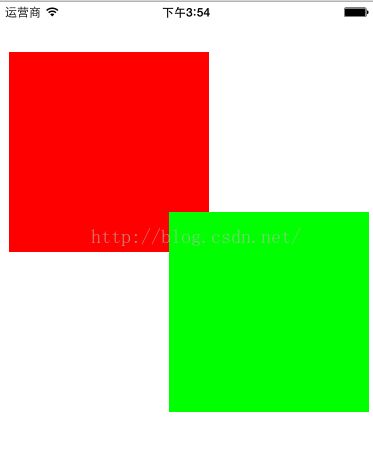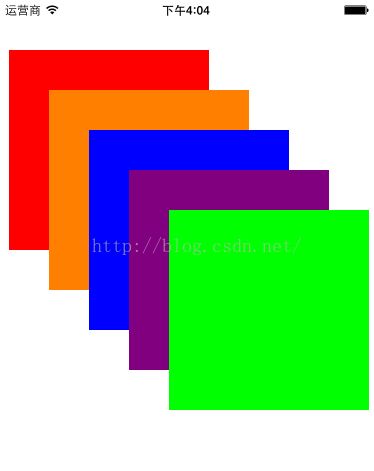Swift UIView 常用添加方法
Swift 添加UIView有几种常见方法
func insertSubview(view: UIView, atIndex index: Int)
func addSubview(view: UIView)
func insertSubview(view: UIView, belowSubview siblingSubview: UIView)
func insertSubview(view: UIView, aboveSubview siblingSubview: UIView)首先 addSubview 最常见就是普通的添加
let view1=UIView(frame: CGRectMake(10, 50, 200, 200))
let view2=UIView(frame: CGRectMake(170, 210, 200, 200))
view1.backgroundColor=UIColor.redColor()
view2.backgroundColor=UIColor.greenColor()
self.view.addSubview(view1)
self.view.addSubview(view2)解析来我们获取一下 self.view的子视图,然后就知道刚才添加的两个视图的index
var arr:[AnyObject]
arr = self.view.subviews;
println("arr=%d",arr.count)结果为4,那么view1 index为2,view2的index为3
下来我们看下这个方法
insertSubview(view: UIView, atIndex index: Int)
将view添加上来
let blueView=UIView(frame: CGRectMake(90, 130, 200, 200))
blueView.backgroundColor=UIColor.blueColor()
self.view.insertSubview(blueView, atIndex: 3)效果如下
我们可以看到 blueView添加到了view1和view2之间了
所有说 这个方法就是将view添加到指定位置
下来我们两个方法一起比较来看
func insertSubview(view: UIView, belowSubview siblingSubview: UIView)
func insertSubview(view: UIView, aboveSubview siblingSubview: UIView) let orangeView=UIView(frame: CGRectMake(50, 90, 200, 200))
orangeView.backgroundColor=UIColor.orangeColor()
self.view.insertSubview(orangeView, belowSubview: blueView)
let purpleView=UIView(frame: CGRectMake(130, 170, 200, 200))
purpleView.backgroundColor=UIColor.purpleColor()
self.view.insertSubview(purpleView, aboveSubview: blueView)效果如下
我们看到他是讲新的两个view分别添加打了 blueview的上边和下边
好了,大家再研究一下
苹果开发群 :414319235 欢迎加入 欢迎讨论问题


